Welcome to our free classical music site

Do you write about classical music? Are you a blogger? Want to team up with Classical Connect? Send us a message, let's talk!

Do you write about classical music? Are you a blogger? Want to team up with Classical Connect? Send us a message, let's talk!
This Week in Classical Music: August 9, 2021. Many composers and one Solomon. We’d like to acknowledge several composers, none of them great, all very interesting: a Venezuelan-born Frenchman Reynaldo Hahn (born August 9th of 1874): it’s not clear if these days he’s better known for his wonderful songs or the friendship with Marcel Proust. Alexander Glazunov, a Russian composer, was also born on August 9th, in 1865. He was a prolific composer of rather old-fashioned music. Glazunov led the St-Petersburg Conservatory during a very difficult time after the revolution; Dmitry Shostakovich was his pupil. Heinrich Ignaz Biber, an Austrian composer, was born in Bohemia on August 12th of 1644, he’s known for his violin music. Maurice Greene (born August 12th of 1696) was an English composer who wrote several popular “anthems.” Another English composer, Kaikhosru Shapurji Sorabji, one of the most unusual composers of all time, was born on August 14th of 1892 (we wrote a brief on him here). His father was a Parsi. Samuel Coleridge-Taylor, yet another English composer, was born on August 15th of 1875. Coleridge-Taylor was highly regarded during his lifetime but then his fame faded rapidly. Coleridge-Taylor’s father was from the African country of Sierra-Leone, which may explain why his music was played more often throughout the last year than during the previous 30. This is not all: the delightful French composer, Jacques Ibert, was born on August 15th of.jpg) 1890. August 15th is also the birthday of the American Lucas Foss (b. 1922).
1890. August 15th is also the birthday of the American Lucas Foss (b. 1922).
Now, to the performers. The British pianist known professionally as Solomon was born Solomon Cutner on August 9th of 1902. He had a most unusual career: a child prodigy, he made his public debut at the age of eight, playing Tchaikovsky’s First Piano Concerto at the Queen’s Hall. Just a couple years later he stopped performing and disappeared for about 10 years. In 1924 he returned to the stage, his technique intact. He toured across Europe and in the US, played for the troops during WWII and later formed a famed trio with the violinist Zino Francescatti and cellist Pierre Fournier. Solomon brilliantly played a broad repertoire, including Brahms, Liszt and Tchaikovsky. He was a great interpreter of such disparate composers as Beethoven and Chopin. Here is Chopin’s Berceuse, recorded in 1946. Solomon loved to play Brahms’s Intermezzo in C Major Op. 119 No. 3, both during the main program or as an encore. Here’s a recording from 1952.
The wonderful Italian pianist Aldo Ciccolini was born on August 15th of 1925. Also this week: the brilliant violinist Ginette Neveu, born on the 11th of August of 1919, who tragically died in a place crash at the age of 30.Permalink
This Week in Classical Music: August 2, 2021. Short takes. We’ll follow the lead of the musicologist Alejandro Planchart who, after sorting out all kind of information, had determined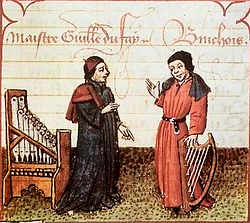 that Guillaume Dufay was born on August 5th of 1397. Dufay (his name was also spelled as Du Fay and Du Fayt) was the most famous composer of his time, that being the early Renaissance of European music. (The picture to the left indirectly attests to his fame: depicted on the left is Guillaume Dufay, on the right – Gilles Binchois, three years younger but also a famous composer; the script above the figures calls Dufay, and only him, “maître,” or master– Binchois is identified just by his name). We’ve written about Dufay a number of times, the last time just a year ago when we analyzed his peregrinations around Europe, here, which are absolutely fascinating, considering the distances he traveled and the general lack of any transportation infrastructure. Getting back to music: what we also find interesting is the use of certain technical devices, which changed as music forms were being developed. For example, early in his career, Dufay wrote what is called “isorhythmic” music. Isorhythm is just a way of using a fixed rhythmic pattern, called talea, which repeats, without change, in one of the voices, usually in the tenor. The use of talea was invented in the Middle Ages, was used by composers like Guillaume de Machaut, and was supposed to give certain structure to the musical piece. That’s how Dufay wrote his motets and masses early on. He dropped this device to write freer and more melodic music later in his career. Here’s Dufay’s early isorhythmic motet, Vasilissa ergo gaude (Therefore rejoice, princess) from about 1420. It’s performed by the Huelgas Ensemble, Paul Van Nevel conducting. And here’s the section Gloria in excelsis Deo from Dufay’s mass Missa ave regina, which was written later in his life, after 1463 (Dufay died in 1474). Ensemble Cantus Figuratus is led by Dominique Vellard.
that Guillaume Dufay was born on August 5th of 1397. Dufay (his name was also spelled as Du Fay and Du Fayt) was the most famous composer of his time, that being the early Renaissance of European music. (The picture to the left indirectly attests to his fame: depicted on the left is Guillaume Dufay, on the right – Gilles Binchois, three years younger but also a famous composer; the script above the figures calls Dufay, and only him, “maître,” or master– Binchois is identified just by his name). We’ve written about Dufay a number of times, the last time just a year ago when we analyzed his peregrinations around Europe, here, which are absolutely fascinating, considering the distances he traveled and the general lack of any transportation infrastructure. Getting back to music: what we also find interesting is the use of certain technical devices, which changed as music forms were being developed. For example, early in his career, Dufay wrote what is called “isorhythmic” music. Isorhythm is just a way of using a fixed rhythmic pattern, called talea, which repeats, without change, in one of the voices, usually in the tenor. The use of talea was invented in the Middle Ages, was used by composers like Guillaume de Machaut, and was supposed to give certain structure to the musical piece. That’s how Dufay wrote his motets and masses early on. He dropped this device to write freer and more melodic music later in his career. Here’s Dufay’s early isorhythmic motet, Vasilissa ergo gaude (Therefore rejoice, princess) from about 1420. It’s performed by the Huelgas Ensemble, Paul Van Nevel conducting. And here’s the section Gloria in excelsis Deo from Dufay’s mass Missa ave regina, which was written later in his life, after 1463 (Dufay died in 1474). Ensemble Cantus Figuratus is led by Dominique Vellard.
Several composers from the modern era were also born this week: the Frenchman André Jolivet on August 8th of 1905 in Montmartre, Paris, and the American, William Schuman, on August 4th of 1910, in Manhattan, New York. Another French composer, Cécile Chaminade, was born on August 8th of 1857, also in Paris. With recent changes in cultural attitudes, Chaminade has enjoyed more popularity than any time since her death in 1944. We’ll have a guest post about Chaminade coming soon. Also, Erich Kleiber, the great Austrian conductor, was born on August 5th of 1890, in Vienna. He moved to Berlin in 1923 to assume the directorship of the Berlin State Opera. Kleiber, who was neither Jewish nor politically active and therefore could have continued to live and conduct safely in Germany, left the country in protest to the Nazi regime’s policies and emigrated to Argentina. Erich Kleiber was the father of Carlos Kleiber, also a celebrated conductor.Permalink
This Week in Classical Music: July 26, 2021. Di Stefano. We missed a big date, Giuseppe Di Stefano’s 100th anniversary, by two days: he was born in a small village of Motta Sant’Anastasia,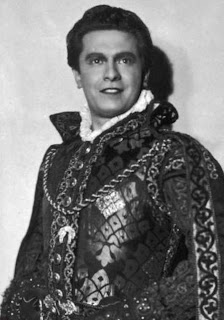 near Catania in Sicily on July 24th of 1921. His family moved all the way north to Milan when Giuseppe was six. At the age of 20 he began voice studies with Luigi Montesanto, a fine baritone and teacher. The war interrupted his career as Di Stefano was conscripted. The regiment’s doctor, having heard him singing, gave him a medical dispensation, saying that he would better serve Italy as singer than a soldier. The regiment was sent to the Russian front where most of the soldiers, including the doctor, were killed. In 1943 Di Stefano fled to Switzerland, was interned there but then released. In Lausanne he made his first recordings. He returned to Italy in 1946 and soon after made his début at the Teatro Municipale, Reggio nell’Emilia, as Massenet’s Des Grieux. A year later, in 1947, he sang at La Scala. In 1948 he made his Metropolitan debut as the Duke in Rigoletto. He was noticed almost immediately, with a critic comparing the 27-year-old tenor with Beniamino Gigli and praising his warm, sensual timbre. A lyric tenor, in his early career he sang mostly lighter roles. By 1957 he moved to heavier “spinto” and even dramatic tenor roles, such as Don José in Carmen, Canio in Pagliacci, Turiddu in Cavalleria rusticana, and Radames in Aida. With this, his voice lost some of its shine and got rougher; still, it was spectacular. Rudolf Bing, the General Manager of the Metropolitan Opera, who knew his singers, said: “The most spectacular single moment in my observation year had come when I heard his diminuendo on the high C in "Salut! demeure" in Faust: I shall never as long as I live forget the beauty of that sound." You can listen to it here, and while the whole aria is sung beautifully, it’s literally breathtaking at around 5’05”. This was a live recording made in 1950 in San Francisco during the War Memorial Opera House Concerts which were then broadcast on NBC. Gaetano Merola conducts the (substandard) San Francisco Opera Association Orchestra.
near Catania in Sicily on July 24th of 1921. His family moved all the way north to Milan when Giuseppe was six. At the age of 20 he began voice studies with Luigi Montesanto, a fine baritone and teacher. The war interrupted his career as Di Stefano was conscripted. The regiment’s doctor, having heard him singing, gave him a medical dispensation, saying that he would better serve Italy as singer than a soldier. The regiment was sent to the Russian front where most of the soldiers, including the doctor, were killed. In 1943 Di Stefano fled to Switzerland, was interned there but then released. In Lausanne he made his first recordings. He returned to Italy in 1946 and soon after made his début at the Teatro Municipale, Reggio nell’Emilia, as Massenet’s Des Grieux. A year later, in 1947, he sang at La Scala. In 1948 he made his Metropolitan debut as the Duke in Rigoletto. He was noticed almost immediately, with a critic comparing the 27-year-old tenor with Beniamino Gigli and praising his warm, sensual timbre. A lyric tenor, in his early career he sang mostly lighter roles. By 1957 he moved to heavier “spinto” and even dramatic tenor roles, such as Don José in Carmen, Canio in Pagliacci, Turiddu in Cavalleria rusticana, and Radames in Aida. With this, his voice lost some of its shine and got rougher; still, it was spectacular. Rudolf Bing, the General Manager of the Metropolitan Opera, who knew his singers, said: “The most spectacular single moment in my observation year had come when I heard his diminuendo on the high C in "Salut! demeure" in Faust: I shall never as long as I live forget the beauty of that sound." You can listen to it here, and while the whole aria is sung beautifully, it’s literally breathtaking at around 5’05”. This was a live recording made in 1950 in San Francisco during the War Memorial Opera House Concerts which were then broadcast on NBC. Gaetano Merola conducts the (substandard) San Francisco Opera Association Orchestra.
Walter Legge, the famous record producer, put Di Stefano and Maria Callas together to record many popular Italian operas. One of them, the 1953 recording of Tosca, with Titto Gobbi as Scarpia, is considered one of the best opera recordings ever made. Here’s a 12-minute excerpt from Act I, starting with “Mario! Mario! Quale occhi" from that legendary recording. Di Stefano and Callas are accompanied by the Orchestra del Teatro alla Scala under the direction of Victor de Sabata.
Di Stefano was a bon-vivant, he smoked and partied, had many lovers (he had an affair with his singing partner, Maria Callas), and sometimes – too often, as far as Rudolf Bing was concerned – failed to show up for rehearsals: Bing banned him from the Met for three years. All of that probably affected his career, which at its height was brief: his voice was already in decline in the late 1950s; Di Stefano himself blamed allergies. He rarely performed after a disastrous Otello in Pasadena in 1966. Di Stefano had a house in Kenia. On December 3rd of 2004 he was robbed and beaten there; perpetrators were never found. He never fully recovered from his injuries. Giuseppe Di Stefano died in his home in Lecco on Lake Como, on March 3rd of 2008 at the age of 86.
Riccardo Muti, a wonderful Italian conductor and the Music Director of the Chicago Symphony, will turn 80 on July 28th. He deserves a full entry, which is forthcoming.Permalink
This Week in Classical Music: July 19, 2021. Francis Poulenc. We’re publishing an entry by a guest contributor, Aleah Fitzwater in which she writes about one of her favorite composers,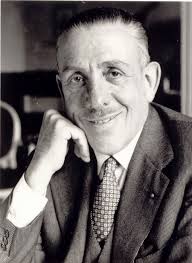 Francis Poulenc. A flute teacher, Aleah especially likes Poulenc’s Flute Sonata. Here it is, in an excellent performance by Emmanuel Pahud, flute, and Éric Le Sage, piano.
Francis Poulenc. A flute teacher, Aleah especially likes Poulenc’s Flute Sonata. Here it is, in an excellent performance by Emmanuel Pahud, flute, and Éric Le Sage, piano.
The Perplexing Francis Poulenc.
Francis Poulenc was born on January 7th of 1899 in Paris. One of France’s most popular composers, he was mainly self-taught. Many listeners feel that as a melodist, he was Faure’s greatest successor. In his music Poulenc was inspired by Stravinsky and Satie, and later by Auric and Milhaud.
Style. Poulenc’s style evolved considerably during his career, from very simplistic, direct pieces early on to much more complex compositions written after World War II. According to Seattlechambermusic.org, Poulenc struggled with both manic and depressive states. This may have led to his unique and eclectic collection of sounds and styles.
Perhaps his struggles with his identity and mental health are also part of the reason why he destroyed most of his earliest compositions. I can’t help but wonder what they may have sounded like. Many of Poulenc’s pieces took on a dark and haunting theme, such as a piece for solo piano, titled Processional pour la crémation d'un mandarin, one of the pieces that he destroyed.
An Early Start. Poulenc started writing when he was just 15 years old, in 1914. As we mentioned, none of the composition written in the following three years survive. His first popular piece was written when he was only 18 years old.
Studying with Ricardo Viñes. Ricardo Viñes was a pianist from Spain, with whom Poulenc studied. A well-regarded musician, Viñes gave premieres for many of this era’s composers, such as Ravel, Debussy and Satie; he was also their close friend. It is surprising to me that Poulenc studied with Vines, as he later joined a group that was at odds with Ravel’s style.
During Poulenc’s time with Vines, he was introduced to many composers, among them Satie and Auric. Vines helped Poulenc network and hone his art as a performing pianist.
Les Six. Les Six was a group of six French musicians. And yep! Their name pays homage to the nationalistic Russian group titled ‘The Five.’ This group (Les Six) was formed by Satie himself in the year 1919. The members of Les Six include Georges Auric, Louis Durey, Darius Milhaud, Arthur Honegger, Poulenc himself, and the only woman, Germaine Tailleferre.
Poulenc joined this group of composers and helped to collaborate on the 1920 album (fittingly named) L’Album des Six. Shortly after this, five of the six members (including Poulenc) worked together to create the collection titled Les Maries de la Tour Eiffel. In this collection, Poulenc wrote a polka, as well as the piece La Baigneuse de Trouville. The collaboration itself was an opera, which was rumored to have caused almost as much of a stir as The Rite of Spring did. The plotline is nothing short of odd. Some key points include a lion (who eats people), and a witchy child murderer. But hey, at least it sounds nice? https://www.youtube.com/watch?v=7zc2FirtReE (continue reading here). Permalink
This Week in Classical Music: July 12, 2021. Heinrich Isaac. Gerald Finzi, a British composer, Eugène Ysaÿe, a Belgian composer and virtuoso violinist, and Giovanni Bononcini, an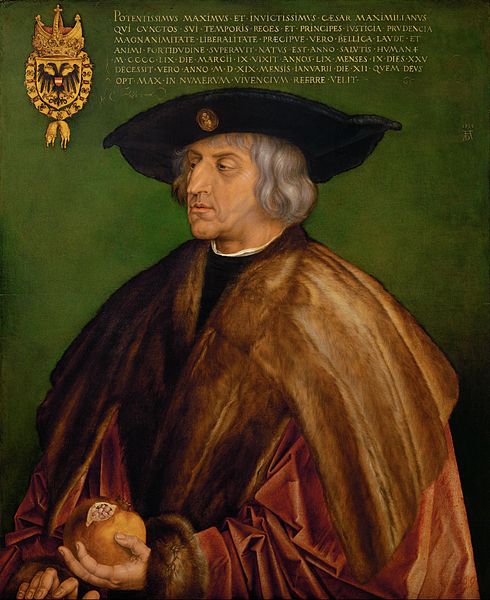 Italian and Handel’s rival, were all born this week (on July 14th of 1901, July 16th of 1858 and July 18th of 1670 respectively). But we’d like to write about Heinrich Isaac, as we haven’t done so before. Isaac, a contemporary of Josquin des Prez and Jacob Obrecht, was born around 1450 in southern Flanders, probably in the Duchy of Brabant. As usually is the case with the composers of the era, little is known about his youth. He’s first mentioned in 1484 as a composer at the court of Duke Sigismund of Austria in Innsbruck. In 1485 he was already in Florence, singing (and probably composing) at the magnificent Baptistry, at the Cathedral of Santa Maria del Fiore, and the Basilica della Santissima Annunziata. Soon after, he entered the employ of Lorenzo de’ Medici the Magnificent, the de facto ruler of Florence during that time. Lorenzo didn’t have a formal chapel of singers, but Isaac was expected to set to music the poems by Lorenzo’s favorite authors and, as Professor Strohm writes, “to contribute generally to the musical life of the Medici household and the city.” Isaac stayed in Florence till 1496; after Lorenzo died in 1492, he came under the patronage of Lorenzo’s son Pietro de’Medici. Even though the Medicis were banished from Florence in 1494, the association with the family was quite beneficial to Isaac: when Lorenzo’s other son, Giovanni, was installed the Pope Leo X in 1513, he became Isaac’s patron in Rome. In the meantime, in 1496 he found employment in Vienna, at the chapel of Maximilian I, the future Holy Roman Emperor from the Habsburg family. By 1502 Isaac was back in Italy, first in Florence and then at the Este court of Ferrara, where he had hoped to find a job. To quote Strohm: “Josquin des Prez was chosen instead, although the court agent Gian d’Artiganova reported (2 September 1502) favourably about Isaac who ‘would compose whenever asked’ and not as he pleased like Josquin.” Isaac returned to Tyrol to join Maximilian’s court and served there till 1514. In 1515 Maximilian allowed Isaac to live in Florence while receiving a salary. He stayed there, composing for Maximilian, the Pope and the church of Santissima Annunziata. Isaac died in Florence on March 26th of 1517.
Italian and Handel’s rival, were all born this week (on July 14th of 1901, July 16th of 1858 and July 18th of 1670 respectively). But we’d like to write about Heinrich Isaac, as we haven’t done so before. Isaac, a contemporary of Josquin des Prez and Jacob Obrecht, was born around 1450 in southern Flanders, probably in the Duchy of Brabant. As usually is the case with the composers of the era, little is known about his youth. He’s first mentioned in 1484 as a composer at the court of Duke Sigismund of Austria in Innsbruck. In 1485 he was already in Florence, singing (and probably composing) at the magnificent Baptistry, at the Cathedral of Santa Maria del Fiore, and the Basilica della Santissima Annunziata. Soon after, he entered the employ of Lorenzo de’ Medici the Magnificent, the de facto ruler of Florence during that time. Lorenzo didn’t have a formal chapel of singers, but Isaac was expected to set to music the poems by Lorenzo’s favorite authors and, as Professor Strohm writes, “to contribute generally to the musical life of the Medici household and the city.” Isaac stayed in Florence till 1496; after Lorenzo died in 1492, he came under the patronage of Lorenzo’s son Pietro de’Medici. Even though the Medicis were banished from Florence in 1494, the association with the family was quite beneficial to Isaac: when Lorenzo’s other son, Giovanni, was installed the Pope Leo X in 1513, he became Isaac’s patron in Rome. In the meantime, in 1496 he found employment in Vienna, at the chapel of Maximilian I, the future Holy Roman Emperor from the Habsburg family. By 1502 Isaac was back in Italy, first in Florence and then at the Este court of Ferrara, where he had hoped to find a job. To quote Strohm: “Josquin des Prez was chosen instead, although the court agent Gian d’Artiganova reported (2 September 1502) favourably about Isaac who ‘would compose whenever asked’ and not as he pleased like Josquin.” Isaac returned to Tyrol to join Maximilian’s court and served there till 1514. In 1515 Maximilian allowed Isaac to live in Florence while receiving a salary. He stayed there, composing for Maximilian, the Pope and the church of Santissima Annunziata. Isaac died in Florence on March 26th of 1517.
Isaac was tremendously prolific, composing masses, 36 of which survive, motets and songs. He was one of the few composers to work in the German language lands, and thus influenced musical development in those countries. Here is Virgo Prudentissima, composed by Isaac for the court of Maximilan I. It’s performed by the ensemble Stile Antico, a British group which is rather unique in that it performs without a conductor. And here is another motet, Innsbruck, Ich Muß Dich Lassen (Innsbruck, I must leave thee); as the one above it was written for Maximilian I. The motet is based on a popular song, also composed by Isaac; it was also used by Johann Sebastian Bach at least twice, in his Cantata BWV 97 In allen meinen Taten and Cantata BWV 117 Sei Lob und Ehr dem höchsten Gut. Innsbruck is performed by the ensemble Hofkapelle under the direction of Michael Procter.
We don't know what Heinrich Isaac looked like -- no portraits of his are extant. The picture above, painted by Albrecht Dürer in 1519, is of the Emperor Maximilian I, Isaac's generous patron.Permalink
This Week in Classical Music: July 5, 2021. Mahler and Gedda. Gustav Mahler’s birthday is on July 7th. He was born in 1860 in Bohemia (then part of the Austria-Hungary, now the Czech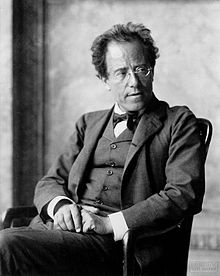 Republic), into a poor German-speaking Jewish family. We’ve written about Mahler many times; his music was slow in acceptance, to a large extent because of its complexity and new nature, but also, in the 1930s and 1940s, for political and ethnic reasons. Mahler became extremely popular in the second half of the 20th century, but it seems that now, again, his music is fading somewhat. We think of it as a litmus test, this time more cultural than political. The changes are especially obvious in radio programming: there was a time when WFMT, a premier classical music station, would broadcasts his symphonies on a regular basis, and especially onhis birthday. Now you will only hear Mahler when WFMT runs special programs, such as old recorded concerts of the symphony orchestras or programs like Henry Fogel’s “Collectors’ Corner.” We don’t know the exact reasons for this – it’s difficult to imagine that WFMT just decided that people stopped loving Mahler’s music. We can only surmise that Mahler’s symphonies are too long and don’t allow for many commercial interruptions, that they are too complex (WFMT, like many other stations, has been trending toward simpler music for years), and that WFMT need more airtime for women composers. Of course, there may also be personal biases at play or other reasons we’re not aware of. But in the end, the results are obvious: Mahler’s music, if not directly banned, is relegated. This is unfortunate and, we hope, will be reversed in the future. In the meantime, here is the fourth movement, Adagio. Sehr langsam und noch zurückhaltend, from Mahler’s Symphony no. 9. Pierre Boulez conducts the Chicago Symphony.
Republic), into a poor German-speaking Jewish family. We’ve written about Mahler many times; his music was slow in acceptance, to a large extent because of its complexity and new nature, but also, in the 1930s and 1940s, for political and ethnic reasons. Mahler became extremely popular in the second half of the 20th century, but it seems that now, again, his music is fading somewhat. We think of it as a litmus test, this time more cultural than political. The changes are especially obvious in radio programming: there was a time when WFMT, a premier classical music station, would broadcasts his symphonies on a regular basis, and especially onhis birthday. Now you will only hear Mahler when WFMT runs special programs, such as old recorded concerts of the symphony orchestras or programs like Henry Fogel’s “Collectors’ Corner.” We don’t know the exact reasons for this – it’s difficult to imagine that WFMT just decided that people stopped loving Mahler’s music. We can only surmise that Mahler’s symphonies are too long and don’t allow for many commercial interruptions, that they are too complex (WFMT, like many other stations, has been trending toward simpler music for years), and that WFMT need more airtime for women composers. Of course, there may also be personal biases at play or other reasons we’re not aware of. But in the end, the results are obvious: Mahler’s music, if not directly banned, is relegated. This is unfortunate and, we hope, will be reversed in the future. In the meantime, here is the fourth movement, Adagio. Sehr langsam und noch zurückhaltend, from Mahler’s Symphony no. 9. Pierre Boulez conducts the Chicago Symphony.
Nicolai Gedda, born on July 11th of 1925 in Stockholm, was one of the best operatic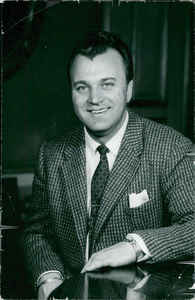 tenors of the mid-20th century. Gedda had a rather unusual biography. He was born out of wedlock; his mother was a 17-year-old Swedish waitress, his father – an unemployed half-Russian, half-Swede. He was raised by his aunt on his father’s side, who was born in Riga, and her husband, Mikhail Ustinoff, a Russian Cossack (and a relative of the famous actor Peter Ustinov). Gedda’s biological parents lived in the same house, but he thought they were his aunt and uncle. Gedda grew up bilingual, speaking Swedish and Russian; he would later turn into a veritable polyglot, learning (and performing operas in) French, German, Italian, English, and Czech, in addition to his native Swedish and Russian. He studied singing in Stockholm with Carl Martin Oehman, a Swedish tenor and singing teacher, who “discovered” Jussi Björling. Gedda made his debut in the Royal Swedish Opera in 1951. Two years later he was already singing in La Scala (Don Ottavio in Mozart’s Don Giovanni). Through his meeting with Walter Legge, who was extremely impressed by Gedda’s singing, he got a recording contract with HMV (His Master’s Voice). In 1954, Gedda moved to Paris, where he sung at the Opéra and in many concerts and festivals. His Covent Garden debut followed the next year and, in 1957, he debuted at the Met, where he sung for 22 seasons. Gedda’s repertoire was remarkably broad: he sung Italian and Russian operas, the Frenchmen Gounod, Berlioz and Biset, he was great in Mozart and operas by the Soviet composers: Shostakovich’s Lady MacBeth of Mtsensk and Prokofiev’s War and Peace. He sung the role of Lohengrin and was a great proponent of the German Lied and Russian Orthodox songs. Gedda sung beautifully well into his 70s. Here is Nicolai Gedda brilliantly singing the aria Salut! Demeure chaste et pure from Gounod’s Faust in the 1978 recording. Andre Cluytens is conducting the Paris Opera orchestra.Permalink
tenors of the mid-20th century. Gedda had a rather unusual biography. He was born out of wedlock; his mother was a 17-year-old Swedish waitress, his father – an unemployed half-Russian, half-Swede. He was raised by his aunt on his father’s side, who was born in Riga, and her husband, Mikhail Ustinoff, a Russian Cossack (and a relative of the famous actor Peter Ustinov). Gedda’s biological parents lived in the same house, but he thought they were his aunt and uncle. Gedda grew up bilingual, speaking Swedish and Russian; he would later turn into a veritable polyglot, learning (and performing operas in) French, German, Italian, English, and Czech, in addition to his native Swedish and Russian. He studied singing in Stockholm with Carl Martin Oehman, a Swedish tenor and singing teacher, who “discovered” Jussi Björling. Gedda made his debut in the Royal Swedish Opera in 1951. Two years later he was already singing in La Scala (Don Ottavio in Mozart’s Don Giovanni). Through his meeting with Walter Legge, who was extremely impressed by Gedda’s singing, he got a recording contract with HMV (His Master’s Voice). In 1954, Gedda moved to Paris, where he sung at the Opéra and in many concerts and festivals. His Covent Garden debut followed the next year and, in 1957, he debuted at the Met, where he sung for 22 seasons. Gedda’s repertoire was remarkably broad: he sung Italian and Russian operas, the Frenchmen Gounod, Berlioz and Biset, he was great in Mozart and operas by the Soviet composers: Shostakovich’s Lady MacBeth of Mtsensk and Prokofiev’s War and Peace. He sung the role of Lohengrin and was a great proponent of the German Lied and Russian Orthodox songs. Gedda sung beautifully well into his 70s. Here is Nicolai Gedda brilliantly singing the aria Salut! Demeure chaste et pure from Gounod’s Faust in the 1978 recording. Andre Cluytens is conducting the Paris Opera orchestra.Permalink